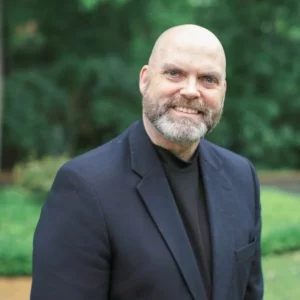How do you make decisions? What role does money play in that process? I asked this question of some Facebook friends a while back and got great answers:
- “I have a friend who complains she is so broke that money rules her home and keeps her from having a relationship with her family. She actually shared that it has ruined her relationship with her teenage daughter.”
- “Thankfully, I grew up in a home where good management of money was a priority and I have been able to make ends meet even when I was a single parent/school teacher working on my masters degree. But what about my (church) family? How many are living in – or close to – the financial survival mode? How do our stories, our experiences affect our (corporate) spirit? Are we operating in a spirit of poverty?”
- “What decisions does money make for me? Mostly the big ones, the ones I’ve never really cared about before now. Before now, I didn’t care about my future. I didn’t really want one. I believed I would die young and my parents would take care of my children. I know better now. God has plans for me, and I am responsible to and for my children. My money makes decisions for them, too.”
- “I hate that I am concerned about money. But I don’t really have much choice. Jesus isn’t dropping a life savings in my lap. I have to earn it.”
The crazy thing with money is this: we can’t own it. Precisely at the point that we try to make “ownership” our posture toward money, it begins to own us. It begins to make our decisions for us.
Kingdom wisdom is counter-intuitive.
The whole thing is counter-intuitive. What feels like ownership is really our money owning us. Jesus talks about this in his story about the unethical manager (Luke 16:1-10). John Wesley is the one who put into words what is probably the most profound and fundamental statement ever made outside the Bible on the use of money. He said this is the key to maximizing both financial and spiritual potential: Earn all you can. Save all you can. Give all you can.
Earn all you can.
Honestly earning and working diligently at God’s purposes gets us past victim status to the place where we can spot potential and opportunity as it comes our way. Jesus’ parable of the unethical manager is all about this. It is really a story about unleashing creativity so we’re thinking beyond greed to a place of rewarding generosity. It is about stretching vision toward Kingdom ideals. Earn all you can so you can (as Richard Foster says) “conquer it and use it to advance the kingdom of God.”
The caution is about how having money can change our posture. Money tends to inflate the ego. JD Walt says, “Making plans is good. Making money is good. Making yourself the captain of your own ship . . . . not so much. At least this is not the way for the followers of Jesus. The “world” will be the world. We can predict it and expect it, we just can’t imitate it. Our options are arrogance or humility, and there’s nothing worse than arrogance.”
Save all you can.
Mark Rutland defines it this way. He says that saving means “setting limits on my lifestyle in order that more might be made available to the kingdom of God and not go up in the smoke of mere consumerism.”
Let me state that again so it sinks in. Saving means “setting limits on my lifestyle.” This is not the same as hoarding or becoming possessive about our possessions. This is about voluntarily limiting myself so that more is available for the kingdom of God. It is a choice about the direction of my investments. Because remember, we’re not earning just for the sake of having or saving for the sake of security. We’re saving for a vision.
Give all you can.
Without this one, the others don’t matter. If we miss out on the first two, we minimize our influence. If we miss out on this third one, we negate our influence completely. The goal is Kingdom influence.
The ownership of money is counter-intuitive for those of us who follow Jesus. We don’t believe humans own money. We can manage it but we can’t own it. In fact, any attempt to own it actually creates the opposite effect. The more we try to own it money, the more it owns us.








